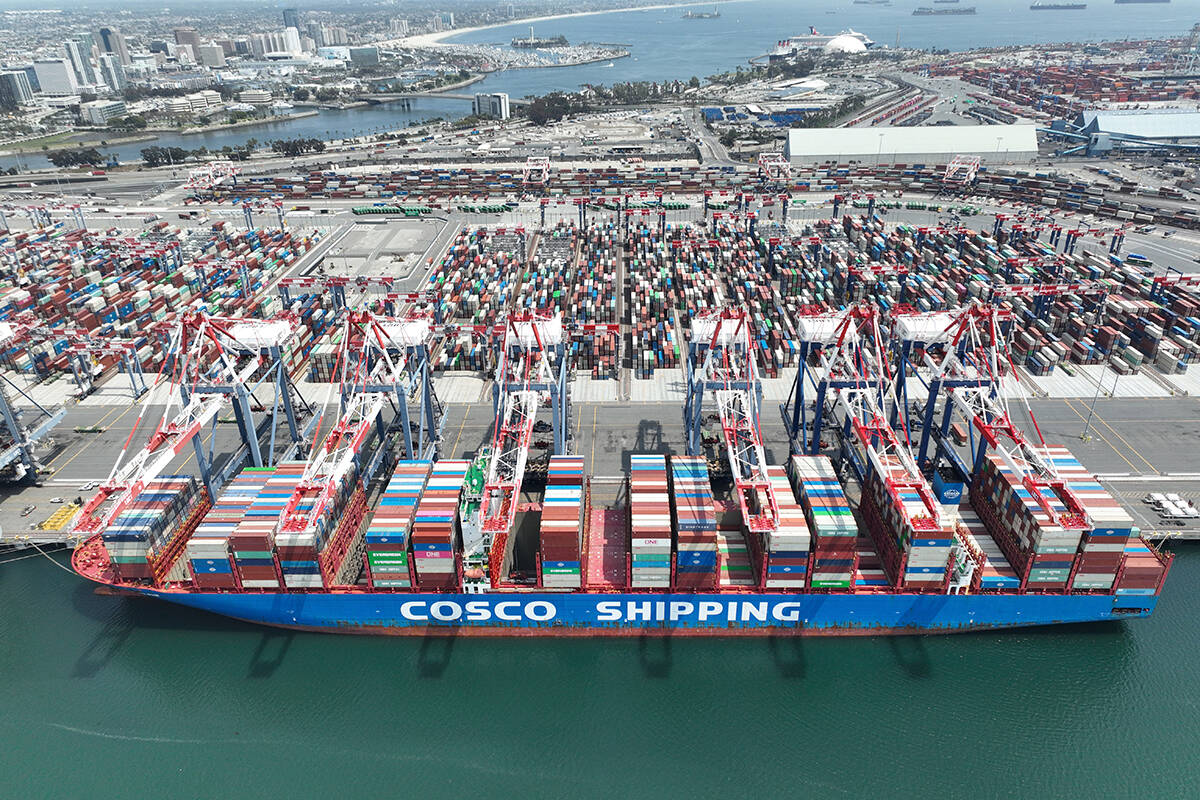Warnings about the danger to Canada’s grain exports of a series of American bilateral trade deals are starting to come true.
As Western Producer reporter Sean Pratt writes on page 72, Canada’s lentil trade with Colombia, its second largest market, is likely to be severely shaken in the new crop year because the United States now enjoys a near insurmountable tariff advantage because of its trade deal with the South American country.
U.S. bilateral deals with Peru and Central American countries also have potential to interfere with Canada’s pulse and grain trade.
Read Also

U.S. softens fees on Chinese shipping
The U.S. starts charging new fees on Chinese ships on Oct. 14. What are the ramifications for their ag exports?
And the problem is not restricted to this hemisphere.
On Jan. 22, Morocco announced it plans to buy 85,000 tonnes of durum from the United States under the terms of its recent free trade deal with the United States.
Canada has traditionally supplied 75-90 percent of Morocco’s durum imports, but the U.S. is expected to become a much stronger competitor thanks to the new trade deal.
The U.S. expects its durum trade with Morocco will increase five fold over the next few years because of the agreement.
America is not alone in going the bilateral route. Australia and others are engaged in similar negotiations. In all, they threaten Canadian grain exports with the death of a thousand cuts.
It is good that the Conservative federal government has said it plans to beef up its trade negotiating team to try to play catch up in bilateral negotiation deals.
It is also good that it has decided to use a challenge of U.S. corn subsidies to apply pressure on the U.S. to get back to the World Trade Organization table.
Clearly many in the world agree, with at least seven countries plus the European Union applying to join Canada’s action as interested third parties.
The corn challenge could lend support to efforts to relaunch the WTO talks. This week, trade ministers and officials were expected to meet at the World Economic Forum at the Swiss resort of Davos and look for consensus that would re-ignite the talks.
Most agree something has to happen by April to save them.
In June, U.S. president George Bush loses his fast track authority to negotiate trade deals and in the autumn, American attention will turn to the presidential election race.
So the hope for a world multilateral trade deal is down to the final weeks.
If it fails, let’s hope Canada’s trade negotiators have their passports up to date and their bags packed because they’ll have a lot of world capitals to visit to try to catch up in the bilateral agreement game.
















